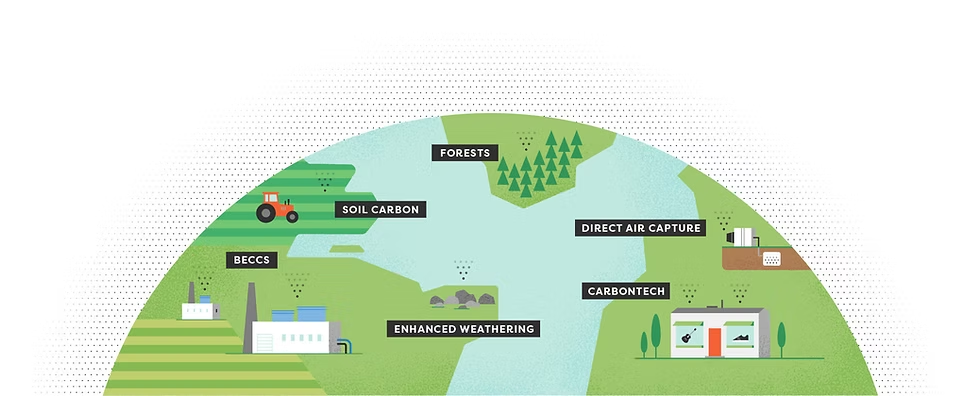Indian Institute of Technology Delhi: Grantee Spotlight (2025)
Grantee spotlight: Indian Institute of Technology Delhi
The Giving Green Fund plans to award a grant to Professors Kaveri Iychettira and Surajit Chakravarty at the Indian Institute of Technology Delhi (IIT Delhi) to map how developer risks influence renewable energy expansion in India and identify policy reforms to reduce renewable energy project bottlenecks. The research is anchored at IIT Delhi in Delhi, India.
IIT Delhi’s project falls within our philanthropic strategy of supporting a clean energy transition in low- and middle-income countries. Please see Giving Green’s strategy report for more information, including potential risks and co-benefits, recommended sub-strategies, theory of change, funding need, and key uncertainties.
Last updated: October 2025
What is IIT Delhi?
Indian Institute of Technology Delhi (IIT Delhi) is among India’s top academic institutions in engineering, science, and technology, with a strong and consistent record of conducting sponsored research projects with industry, government, and other academic institutions, both within India and abroad. Notably, IIT Delhi successfully conducted sponsored research projects worth approximately $171 million between 2019 and 2023. IIT Delhi was established in 1961.
What are we funding, and how could it help address climate change?
As India accelerates utility-scale solar and wind deployment, developers face significant challenges, including grid congestion and capacity stranding of up to 50 GW, delays in land acquisition and right-of-way approvals, project cancellations in ecologically sensitive areas, and heightened financial constraints. IIT Delhi’s research project will examine how developers navigate these operational, regulatory, and social challenges, engage with local communities and regulators, manage permitting processes, and price risk across diverse state contexts.
Through surveys and interviews with leading firms—including ReNew Power, Tata Power Solar, and Adani Solar—the research will identify how grid constraints, state policies, and social acceptance shape project siting and investment decisions, often resulting in suboptimal distribution of renewable generation assets across India. By linking project-level decision-making to institutional and political frameworks, the study will generate evidence to guide policy amendments that alleviate transmission bottlenecks and optimize renewable integration, particularly in states with weaker institutional capacity. We think the findings from this research could inform policymakers and industry stakeholders on actionable steps to align India’s renewable energy expansion with local development priorities, climate mitigation goals, and long-term grid reliability.
Why do we think IIT Delhi will use this funding well?
IIT Delhi is one of India’s premier research institutions, and its academics tend to be recognized for their technical expertise, knowledge creation, and supporting policy innovation. The principal investigator of the research, Professor Kaveri Iychettira, is part of IIT’s School of Public Policy and has professional associations with the Harvard Kennedy School and Johns Hopkins University. She has a track record of policy-relevant publications that apply economics and systems thinking to facilitate energy transitions, and is leading research funded by Giving Green on development-compatible pathways for achieving net-zero emissions in India by 2070.
Professor Iychettira’s team will communicate the study findings by building on IIT’s existing relationships with central and state governments, as well as other stakeholders. Based on conversations we have had with other organizations and funders, we believe the Indian government trusts IIT Delhi’s research, and there is evidence that it has requested their input in governmental consultations and decision-making. For example, IIT Delhi provided inputs to the drafting of India's Long-Term Low Emission Development Strategies (LT-LEDs), a submission made to UNFCCC in 2022. IIT Delhi is also routinely invited to take part in technical consultations, amongst others, for the National Green Hydrogen Mission and the Indian Carbon Credit Trading Scheme (CCTS).
Giving Green believes that additional climate donations are likely to be most impactful when directed to our top nonprofits. For several reasons, we may choose to recommend grants to other organizations for work that we believe is at least as impactful as grants to our top recommendations. We are highlighting this grant to offer transparency to donors to the Giving Green Fund, as well as to provide a resource for donors who are particularly interested in this impact strategy. This is a nonpartisan analysis (study or research) and is provided for educational purposes.
Support Our Work
Giving Green Fund
One fund. Global impact. One hundred percent of your gift supports a portfolio of high-impact climate organizations, vetted by our research.
Best for:
Donors who want the simplest way to impact multiple climate solutions.
Top Climate Nonprofits
Meet the organizations on Giving Green’s list of high-impact nonprofits working to decarbonize our future, identified through our rigorous research.
Best for:
Donors who want to give directly and independently.
Support Our Work
We thoroughly research climate initiatives so you can give with confidence. For every $1 we receive, our work unlocks another $21 for effective climate solutions.
Best for:
Donors who want to amplify their impact through research.
.png)







.png)
.png)
.png)



.png)
.png)

.png)


.png)
.png)

.png)
.png)




.jpg)

.png)







.png)

.png)
.png)

.png)









.png)



.png)
.png)





.png)


.png)
.png)
.png)
.png)


.png)
.png)
.png)
.png)

.png)
.png)
.jpg)
.png)
.png)
.png)
.png)
.png)


